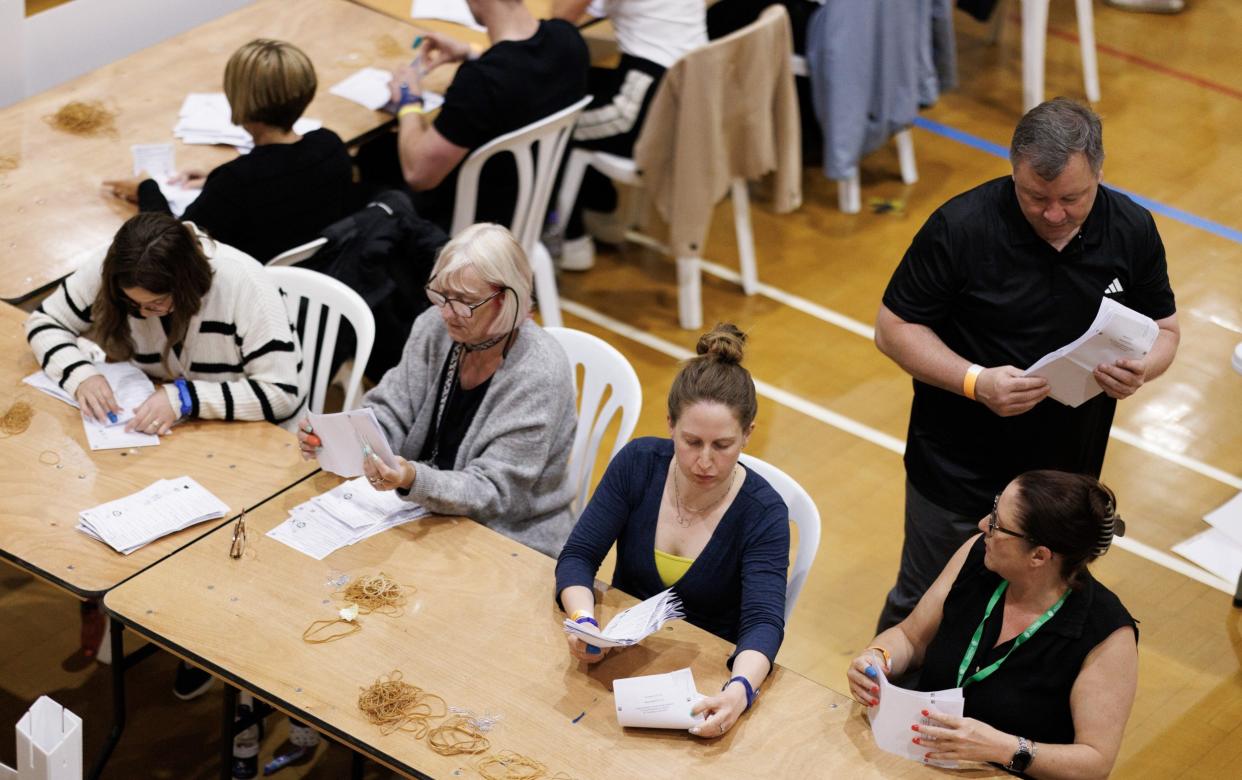Tories reacted with relief at the exit poll – that shows how bad the party’s position is

This is a disastrous result for the Tories. Catastrophic. Cataclysmic. Apocalyptic.
Never mind the expectations game and look at the raw numbers. In the 190 years of its existence, the Conservative Party has never sunk below 156 MPs at an election. Until now. Assuming that the exit poll is even vaguely accurate, future psephologists will talk about “the worst performance since 2024”.
There is a curious rule in political punditry, whereby parties are to a degree measured, not by whether they win, but whether they outperform the last opinion poll.
By that gauge, the Conservatives have done slightly better than expected. Several Tory candidates were talking of a last-minute swing, as voters – especially homeowners, savers and pensioners – realised what Labour’s tax plans would mean for them.
Here on the Hampshire-Berkshire borders, you could sense Tory support firming, not out of any enthusiasm, but out of a distaste for Labour. In that sense, “stop the supermajority” might be said to have worked.
Except, obviously, that the Tories did not “stop the supermajority”. Their messaging might have averted an even more lethal rout. They might have won 50 more seats than they looked like winning last week. But facts are facts. This is the worst kicking they have ever received.
I watched the news break with a group of Tory supporters at the Mayfair dinner hosted by Michael Spencer, whose election night parties are generally recognised as an indispensable aspect of our informal constitution. The mood when the numerals flashed up on screen was of relief. Which is telling us something. The Conservatives get their worst result 200 years, and the first reaction is “phew!”
What of the other parties? Labour will be delighted. There will be no meaningful opposition to Sir Keir Starmer; nor, at least at first, any internal dissent, for he is a master of process, and has purged potential troublemakers. With inflation, immigration and NHS waiting lists all falling, Labour will enjoy its first year or two. But the money will eventually run out.
For the Lib Dems, it means the final breaking of the tuition fees curse. Fully 12 years after Nick Clegg’s “I’m so so sorry” remix, his shade has been put to rest.
The surprise winner, on these preliminary numbers, is Reform UK, which has not only surpassed expectations but beaten the SNP on seats, and possibly beaten the Lib Dems on votes.
How Nigel Farage will manage with a phalanx of MPs remains to be seen. He is a brilliant politician, but his parties never seem to hold together. My guess is that some Reform MPs will end up joining the Conservatives, and others going independent.
Sir Keir will enjoy the strongest majority of modern times. Yet there was no surge in Labour votes, and there is little enthusiasm for the party. I suspect he will struggle when tough decisions are required. How will Labour MPs, let alone Labour voters, react when it is their party that must cut spending?
Will the Conservatives be in a position to exploit that moment? It depends partly on whether they patch up their relationship with Reform. After the destruction of the Canadian Tories in 1993 (by a party not coincidentally called Reform), Canada’s Liberals were in office for more than 13 years. First-past-the-post brutally punishes a split on one side of the spectrum.
Eventually, as in Canada, there will be some kind of “Unite the Right” movement here. I just hope it doesn’t take us until 2038.


